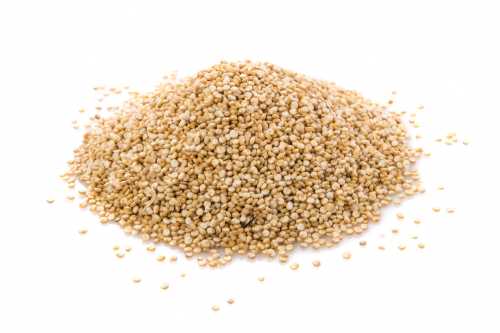Ovarian cyst becomes a problem in women when it does not disappear and keeps growing bigger. With time it tends to add more weight to you as an individual. If you find yourself in such a situation, you can’t help but ask the question “Will I lose weight when they remove my ovarian cyst?”
The development of ovarian cysts can result in weight gain in women. It looks similar to pregnancy and so if you have an ovarian cyst growing inside you, you may mistake it for pregnancy. In 2018, a woman called Kayla Rahn from Alabama removed a 50-pound cyst (roughly the size of a watermelon). Earlier on, many doctors mistook it for pregnancy.
An ovarian cyst is a solid or fluid-filled sac or pocket in an ovary. They are common in especially pregnant women and women who have not gone through menopause yet. They are usually harmless and painless. Many women will develop at least one cyst during their lifetime. You can also get one every month as part of your menstrual cycle and not even know it.
If you have one and are planning on removing it, you might be wondering if you will lose weight when it is removed. To determine if you can lose weight when your ovarian cyst is removed, you need to, first of all, understand what an ovarian cyst is, the symptoms, and a number of other important factors.
Will I lose weight when my ovarian cyst is removed?
Yes, when your ovarian cyst is removed you can lose weight. It however depends on the size of the ovarian cyst that can determine if you will lose a lot of weight or not.
Imagine an ovarian cyst of less than a pound being removed from within you, do you think you will lose any significant weight afterward?
This, therefore, emphasizes the fact that the weight that may be lost following the removal of an ovarian cyst is proportional to the actual weight of the ovarian cyst. The heavier the cyst, the more weight you are likely to lose when it is removed.
In the same vein, a less weighty ovarian cyst that is removed may not be seen to necessarily result in weight loss.
In as much as it has been stated that the growth of ovarian cysts can increase your weight, it doesn’t mean that anytime you find out that you are putting on weight then it is because you have ovarian cysts. As such, if your intention is to lose weight through the removal of an ovarian cyst, then there has to be a cyst that can be removed.
Otherwise, you have no business going to remove something that does not exist. The conclusion, therefore, is that you can lose weight when they remove your ovarian cyst but on the condition that the cyst was contributing largely to the increase in weight you experienced.
Now that you know that removing an ovarian cyst can make you lose weight, let us take a deeper look at the relevant information about ovarian cysts. Some of the key areas that will be explored in this article include:
- What is an ovarian cyst?
- Types of ovarian cyst
- Symptoms
- Complications or risk factors
- Diagnosis
- Treatment
- Prevention
What is an ovarian cyst?
It is a solid or fluid-filled sac in the ovary. The ovaries are a part of the female reproductive system located in the lower abdomen on both sides of the uterus. When the ovary produces eggs as well as hormones (estrogen and progesterone), a fluid (cyst) develops on one of the ovaries.
Ovarian cysts usually disappear in a few months but can cause complications if they don’t. Most ovarian cysts do not cause symptoms. In some cases, menstrual irregularities, pain during intercourse, or irregular bowel movements can occur.
What causes ovarian cyst?
Most ovarian cysts develop as a result of your menstrual cycle. There have been a number of postulated or possible causes of ovarian cyst in women. Some of these causes include:
- Having some hormonal imbalances
- Having a medical condition known as endometriosis
- Being pregnant (especially in the early stages of the pregnancy)
- Having severe pelvic infections
Types of ovarian cyst
Ovarian cysts are of many types; some of which include dermoid cysts, endometrioma cysts, functional cysts, amongst others. A functional cyst is the most common type of ovarian cyst.
Here is an in-depth look at some of the types of ovarian cyst
Functional cyst
This is a type of ovarian cyst where normal follicles keep on growing every month. There are 2 types of functional follicles namely;
Follicle cyst
This type of cyst begins when the follicle does not rapture or release its egg but continues to grow. During a woman’s menstrual cycle, an egg grows in a sac called a follicle. This sac is located inside the ovaries. Around the midpoint of your menstrual cycle, an egg bursts out of its follicle and travels down the fallopian tube.
Corpus luteum cyst
When a follicle releases its egg, it begins making estrogen and progesterone for conception. This follicle is now called the corpus luteum. Fluid sometimes accumulates inside the follicle, causing the corpus luteum to grow into a cyst.
Dermoid cysts
This type of cyst contains tissue such as hair, skin, or teeth. They form part of embryonic cells and are rarely cancerous. It is also called teratomas
Cystadenomas
A type of cyst that develops on the surface of an ovary and may be filled with mucous substances.
Endometriomas
A type of cyst that develops as a result of a condition in which the uterine endometrial cells grow outside your uterus (endometriosis). Some of the tissue can attach to your ovary and form growth.
Dermoid cysts and cystadenomas can grow and become large, causing the ovary to move out of position. This increases the chance of painful twisting of your ovary, called ovarian torsion. Ovarian torsion may also result in decreasing or stopping blood flow to the ovary.
Symptoms of an ovarian cyst
Most times ovarian cysts do not cause any symptoms. However, symptoms can appear as the cyst develops. Symptoms of ovarian cysts are as follows
Abdominal bloating or swelling, painful bowel movements, pelvic pain before or during the menstrual cycle, painful intercourse, pain in the lower back or thighs, breast tenderness, nausea, and vomiting
Severe symptoms of an ovarian cyst that require immediate medical attention include:
Severe or sharp pelvic pain, fever, rapid breathing, etc. Symptoms like these can serve as a sign to indicate a ruptured cyst or an ovarian torsion.
Complications and risk factors of ovarian cyst
Ovarian cysts naturally go away on their own without the need for treatment. But in rare cases, they do have some side effects or complications. Some of which include
- A cancerous cystic ovarian mass (they are difficult to detect even during a physical exam)
- Ovarian torsion (when a large cyst causes an ovary to twist or move from its initial position.
Here are some of the risk factors of ovarian cysts
- Severe pelvic infection
- Hormonal problems
- Endometriosis (a condition that causes uterine endometrial cells to grow outside your uterus)
Diagnosis
There are several ways to diagnose ovarian cysts. Here are some of the methods used to diagnose an ovarian cyst
Pregnancy test
A positive pregnancy test may mean you have a corpus luteum cyst.
Pelvic ultrasound
This uses sound waves to make an image of your uterus and ovaries. The doctor can confirm that you have a cyst, pinpoint its location, and determine what type of ovarian cyst it is.
Laparoscopy
A slim instrument with a light camera is inserted into your belly through a small cut. Your ovaries can be seen and if there are any ovarian cysts, they can be removed
Will I lose weight when my ovarian cyst is removed?
Yes, when your ovarian cyst is removed you can lose weight. It however depends on the size of the ovarian cyst that can determine if you will lose a lot of weight or not.
Imagine an ovarian cyst of less than a pound being removed from within you, do you think you will lose any significant weight afterward?
This, therefore, emphasizes the fact that the weight that may be lost following the removal of an ovarian cyst is proportional to the actual weight of the ovarian cyst. The heavier the cyst, the more weight you are likely to lose when it is removed.
In the same vein, a less weighty ovarian cyst that is removed may not be seen to necessarily result in weight loss.
In as much as it has been stated that the growth of ovarian cysts can increase your weight, it doesn’t mean that anytime you find out that you are putting on weight then it is because you have ovarian cysts. As such, if your intention is to lose weight through the removal of an ovarian cyst, then there has to be a cyst that can be removed.
Otherwise, you have no business going to remove something that does not exist. The conclusion, therefore, is that you can lose weight when they remove your ovarian cyst but on the condition that the cyst was contributing largely to the increase in weight in the individual.
Treatment of an ovarian cyst
Most ovarian cysts disappear on their own. Your doctor can also give you medication. Some ovarian cysts do require surgery (for example laparoscopy and laparotomy)
Can I prevent ovarian cysts from growing
Ovarian cysts can’t be prevented. However, routine gynecologic examinations can detect ovarian cysts early. This ensures that changes in your ovaries are diagnosed as early as possible.








Leave a Comment